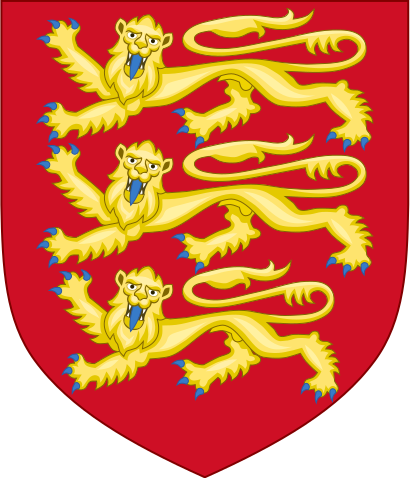5500 BC is the traditional date for the creation of the world according to the Septuagint version of the Bible widely accepted by the Orthodox churches and the early Roman Catholic church.

History of Fabula Mundi
-
5500 BC
Creation of the World
Religious event -
3258 BC
The Flood
Disaster / DestructionGod cleanses the world through the Flood, warning only Noah to save his family and animals, according to readings from the Septuagint versions of the Bible.
-
2111 BC
Call to Abraham
Religious eventGod calls upon Abraham to leave his country and travel to the land of Canaan, which God would grant to him and his descendants.
-
1391 BC
The Exodus
Population Migration / TravelMoses led the Israelites from Egypt in 1391 BC, according to readings of the Septuagint Bible.
-
1240 BC
The Sack of Troy
Disaster / DestructionTroy is sacked by the Greeks. Aeneas the Trojan flees the city, eventually arriving in Italy and becoming its king.
-
1115 BC
The Founding of Britain
FoundingBrutus the Trojan, grandson of Aeneas, founded Britain in 1115 BC, according to Geoffrey of Monmouth's History of the Kings of Britain.
Location
Britain -
753 BC
Founding of Rome
FoundingRome is founded by Romulus and Remus
-
390 BC
The Sack of Rome
Military actionBelinus, King of Loegria, Kamber and Cornwall, and his brother Brennius, King of Northumbria and Alba, sack Rome, according to Geoffrey of Monmouth's History of the Kings of Britain.
-
52 BC
Battle of Alesia
Military actionCaesar defeats Vercingetorix at the Battle of Alesia, completing his conquest of Gaul.
-
43 AD
87 AD
Roman Conquest of Britain
Military actionEmperor Claudius send four legions under General Aulus Plautius to conquer Britain. The island is largely pacified by 87 AD.
-
410 AD
Sack of Rome
Military actionVisigoths under Alaric sack Rome
-
418 AD
Gothic Aquitania
Political eventThe province of Aquitania is granted to the Goths in return for their aid against the Vandals. They establish a capital at Toulouse.
-
793 AD
2 /6
Vikings raid Lindisfarne
Military actionThe Viking raid on the monstery of Lindisfarne in Northumbria caused consternation throughout Europe. Many of the monks were killed, captured or enslaved. Alcuin of York, a Northumbrian scholar at the Court of Charlemagne, wrote, "Never before has such terror appeared in Britain as we have now suffered from a pagan race ... The heathens poured out the blood of saints around the altar, and trampled on the bodies of saints in the temple of God, like dung in the streets." The raid heralds the start of the Viking Age.
-
1066 AD
14 /101066 AD
25 /12
Norman Conquest of England
Military actionDuke William of Normandy defeated an English army under Harold Godwinson at Senlac Hill, near Hastings, on 14 October 1066. Harold was killed in the battle. The English Witenagemot proclaimed the teenaged Edgar the Aetheling, grandson of Edmund Ironside, the new king. Duke William defeated a second English army at Southwark in October 1066, but was unable to cross the bridge to London. Duke William travelled up the Thames to Wallingford, where he crossed the river and advanced on London. King Edgar's supporters submitted to him at Berkhamsted, and he was crowned King of the English by Archbishop Stigand at Westminster on 25 December 1066.
-
1154 AD
19 /121189 AD
6 /7
Reign of King Henry II
Political eventHenry Plantagent, already Duke of Normandy and Count of Anjou and Maine in his own right, and Duke of Aquitaine by right of marriage to Eleanor of Aquitaine, is crowned King of England in 1154 following the death of King Stephen. His reign ends with his death in 1189.
-
1187 AD
4 /7
The Battle of Hattin
Military actionAyyubid Sultanate under Salah ad-Din overwhelimngly defeats the Crusader forces of the Kingdom of Jerusalem.
-
1187 AD
29 /10
Call for Third Crusade
Political eventPope Gregory VIII issues the bull Audita tremendi (A trembling voice) calling for a new Crusade to recapture Jerusalem. Henry II of England, his son Richard, Philip II of France and Frederick Barbarossa are among the prominent Europeans who answer the call.
-
1189 AD
4
Barbarossa sets off on Crusade
Population Migration / TravelRoman Emperor Frederick Barbarossa sets off from Regensburg, in Bavaria, on the banks of the Danube.
-
1189 AD
28 /81191 AD
11 /7
Siege of Acre
Following the Battle of Hattin Ayyubid forces capture all of the Kingdom of Jerusalem save Tyre. Guy de Lusignan. King of Jerusalem, launched a coutnerattack by laying siege to Acre. The siege lasted two years, and the eventual taking of the city was the major achievement of the Third Crusade.
Location
Acre -
1190 AD
11190 AD
/6
Richard tours continental possessions
Political eventDuring the first part of 1190 King Richard tours his continental poossessions - Normandy, Anjou. Poitheu and Aquitaine - appointing or confirming seneschals and making arrangements for his absence.
-
1190 AD
6
Death of Frederick Barbarossa
Life, DeathRoman Emporer Frederick Barabrossa drowns in the Saleph river near Silifke Castle in Cilician Armenia. Frederick took a shortcut along the river on Armenian advice, while his army cross the mountains.
-
1190 AD
71190 AD
/9
Richard and Philip begin their crusade
Population Migration / TravelRichard and Philip meet in Vézelay, Burgundy, and begin their separate journeys to Outremer.
-
1192 AD
2 /91195 AD
2 /9
Treaty of Jaffa
Diplomatic action







